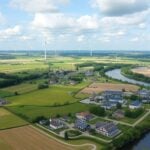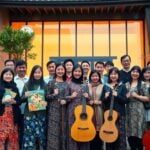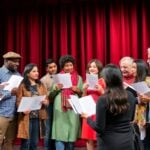The grant application process can often seem daunting, especially for those who are new to it. At its core, this process involves a series of steps that organizations or individuals must undertake to secure funding for specific projects or initiatives. Understanding the nuances of this process is crucial for success.
Typically, the journey begins with identifying the right funding sources, which can range from government agencies and private foundations to corporate sponsors. Each of these entities has its own set of guidelines, priorities, and expectations, making it essential for applicants to familiarize themselves with the specific requirements of each grant they intend to pursue. This initial phase sets the stage for a well-informed application, as it allows applicants to tailor their proposals to align with the funders’ objectives.
Once potential grants have been identified, applicants must navigate the intricacies of the application itself. This often involves gathering a variety of documents, including organizational information, project descriptions, and supporting materials that demonstrate the need for funding. The application process may also require a detailed timeline and a clear outline of how the funds will be utilized.
Understanding these components is vital, as they not only reflect the applicant’s preparedness but also their commitment to transparency and accountability. Moreover, many funding organizations employ a competitive review process, meaning that applicants must present their projects in a way that stands out among numerous submissions. Therefore, a comprehensive understanding of the grant application process is not just beneficial; it is essential for securing funding.
Key Takeaways
- Understanding the grant application process is crucial for success in securing funding for your project or organization.
- Researching and identifying suitable grants requires thorough investigation and alignment with the goals and requirements of the grant-giving organization.
- Crafting a compelling proposal involves clearly articulating the need, impact, and feasibility of your project or program.
- Budgeting and financial planning are essential components of a grant proposal and require careful consideration and accuracy.
- Navigating the submission process involves following the guidelines and requirements of the grant application, including deadlines and submission methods.
- Following up and evaluating results is important for learning from the application process and improving future grant-seeking efforts.
Researching and Identifying Suitable Grants
Researching and identifying suitable grants is a critical step in the grant application journey. This phase requires a strategic approach to ensure that applicants are targeting funding opportunities that align with their project goals and organizational mission. A thorough examination of available grants can be conducted through various channels, including online databases, grant directories, and networking within relevant professional communities.
Many organizations also benefit from subscribing to newsletters or alerts from funding agencies that provide updates on new grant opportunities. By leveraging these resources, applicants can compile a list of potential grants that not only match their needs but also resonate with the interests of the funding bodies. In addition to identifying grants based on thematic relevance, it is equally important to consider the eligibility criteria set forth by each funding source.
These criteria often include factors such as geographic location, organizational type, and project scope. For instance, some grants may be exclusively available to nonprofit organizations, while others might focus on specific sectors like education or environmental conservation. By carefully analyzing these parameters, applicants can avoid wasting time on grants for which they do not qualify.
Furthermore, understanding the priorities and values of potential funders can enhance an applicant’s ability to craft a proposal that speaks directly to those interests, thereby increasing the likelihood of securing funding.
Crafting a Compelling Proposal

Crafting a compelling proposal is arguably one of the most critical aspects of the grant application process. A well-written proposal serves as a persuasive document that articulates the significance of the project and demonstrates its alignment with the funder’s goals. To achieve this, applicants must clearly define their project objectives and articulate how these objectives will address specific needs within the community or field they serve.
This requires not only a deep understanding of the project itself but also an awareness of the broader context in which it operates. By providing compelling evidence of need—such as statistics, case studies, or testimonials—applicants can create a narrative that resonates with reviewers and underscores the importance of their work. Moreover, a successful proposal must be meticulously organized and formatted according to the funder’s guidelines.
This includes adhering to word limits, using appropriate headings, and providing all required documentation. Clarity and conciseness are paramount; reviewers often have limited time to evaluate numerous proposals, so presenting information in an easily digestible format can make a significant difference. Additionally, incorporating visuals such as charts or graphs can enhance understanding and engagement.
Ultimately, crafting a compelling proposal is about telling a story—one that not only highlights the applicant’s vision but also inspires confidence in their ability to execute the project effectively.
Budgeting and Financial Planning
Budgeting and financial planning are integral components of any grant application, as they provide funders with insight into how requested funds will be allocated and managed. A well-structured budget should detail all anticipated expenses associated with the project, including personnel costs, materials, equipment, travel expenses, and indirect costs. It is essential for applicants to be realistic and transparent in their budgeting; inflated estimates or vague descriptions can raise red flags for reviewers and jeopardize funding opportunities.
Additionally, including a narrative that explains each line item in the budget can help clarify how funds will be utilized and demonstrate fiscal responsibility. Beyond simply outlining expenses, effective financial planning also involves considering potential sources of matching funds or in-kind contributions. Many funders prefer to see that applicants have secured additional support from other sources, as this indicates a broader commitment to the project and reduces reliance on a single funding stream.
Furthermore, demonstrating sustainability—how the project will continue after grant funds have been exhausted—can significantly strengthen an application. By presenting a comprehensive financial plan that addresses both immediate needs and long-term viability, applicants can instill confidence in funders regarding their ability to manage resources effectively.
Navigating the Submission Process
Navigating the submission process can be one of the more intricate aspects of applying for grants. Each funding organization has its own submission protocols, which may include online portals or traditional mail submissions. Familiarizing oneself with these requirements is crucial; failure to adhere to submission guidelines can result in disqualification regardless of the proposal’s quality.
Applicants should carefully review all instructions provided by the funder, including deadlines for submission and any specific formatting requirements. Creating a checklist can be an effective strategy to ensure that all components are completed accurately and submitted on time. In addition to understanding submission logistics, it is also wise for applicants to consider potential technical issues that may arise during the process.
For instance, online submission systems can sometimes experience glitches or downtime, which could hinder timely submissions. To mitigate this risk, applicants should aim to submit their proposals well ahead of deadlines—ideally several days in advance—to account for any unforeseen complications. Furthermore, maintaining open lines of communication with funder representatives can provide clarity on any questions or concerns regarding the submission process.
By approaching this phase with diligence and foresight, applicants can enhance their chances of successfully submitting their proposals.
Following Up and Evaluating Results

Following up after submitting a grant application is an often-overlooked yet vital step in the overall process. Once proposals have been submitted, applicants should consider reaching out to funders to confirm receipt of their applications and inquire about anticipated timelines for review and decision-making. This proactive approach not only demonstrates professionalism but also keeps applicants informed about their standing in the selection process.
Additionally, if an application is unsuccessful, many funders provide feedback upon request; this feedback can be invaluable for refining future proposals and improving overall grant-seeking strategies. Evaluating results after receiving funding decisions is equally important for continuous improvement in grant writing efforts. Successful applicants should take time to reflect on what aspects of their proposal resonated with funders and contributed to their success.
Conversely, those who were not awarded funding should analyze any feedback received critically and identify areas for enhancement in future applications. This reflective practice fosters growth and development within organizations or individuals seeking grants and helps build resilience in navigating the competitive landscape of grant funding. Ultimately, following up and evaluating results are essential components of a comprehensive grant application strategy that can lead to greater success in future endeavors.
For those who have mastered the art of grant applications and are looking for opportunities to apply their skills, the Health and Care Research Wales Doctoral Fellowship Award might be of interest. This award provides a fantastic opportunity for individuals aiming to pursue a doctoral degree in the UK, focusing on health and care research. The fellowship is designed to support promising researchers in developing their careers and contributing to the health sector through innovative studies. For more details on eligibility, application process, and deadlines, you can visit the official page here.
FAQs
What is a grant application?
A grant application is a formal request for financial support from an organization, government agency, or foundation to fund a specific project or program.
What are the key components of a grant application?
The key components of a grant application typically include a project proposal, budget, timeline, organizational information, and supporting documents such as letters of support or endorsements.
How can I improve my grant writing skills?
To improve grant writing skills, individuals can attend workshops, seek mentorship from experienced grant writers, and practice writing and reviewing grant applications. Additionally, reading successful grant applications and understanding the requirements of different funding agencies can also help improve grant writing skills.
What are some common mistakes to avoid in grant applications?
Common mistakes to avoid in grant applications include not following the application guidelines, submitting incomplete or poorly written proposals, and failing to clearly articulate the project’s goals, objectives, and impact. It is also important to avoid requesting an unrealistic budget or failing to provide adequate supporting documentation.
What are some tips for a successful grant application?
Some tips for a successful grant application include thoroughly researching the funding organization, tailoring the proposal to fit the funder’s priorities, clearly articulating the project’s goals and objectives, providing a realistic and detailed budget, and submitting the application before the deadline. Additionally, seeking feedback from peers or mentors and proofreading the application for errors can also improve the chances of success.


























